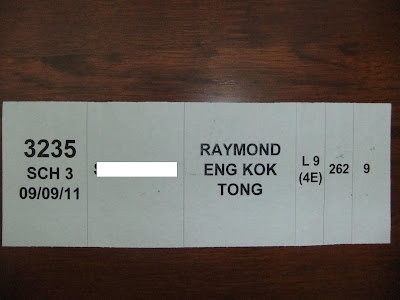 |
| Yo mate, I'm just right behind you! |
When Kevin Rudd became Australia's prime minister for the second time five weeks ago, he was probably creating a story that tells of the biggest political comeback in recent history. After defeating Julian Gillard, the woman who replaced him in 2010, will a revitalized Rudd be able to give this story a perfect ending?
Five weeks after being sworn in for a second term, Ruud has announced that the 2013 Australian federal election will be held on 7 September, coincidentally, five weeks later. This ongoing Australian show appears to be so drama-like because just when the ruling Labor party faces a heavy defeat in elections, Rudd makes a comeback to save them.
Opinion polls indicate that since the reinstatement of Rudd, he has overtaken opposition leader Tony Abbott as the better prime minister. Abbott was constantly leading Gillard throughout 2013 due to the latter's unpopular policies.
Although it is a fact that Labor has a new leader, the party itself remains divided into two sides, pro-Rudd and anti-Rudd. Those who ousted him three years ago are likely to be relying on him to hold on to their jobs. If Labor claims victory, these MPs will have to be prepared for revenge.
The newly assembled team by Rudd is one which puts emphasis on personnel responsible for media and communication. Just like a movie, this team still lacks a predictable future but is certainly in for an unforgettable adventure that will define their lives and the lives of many other people.
Rudd inherits several big dents which had destructed Labor's image. Climate was the first crucial issue he tackled as part of campaigning. The floating price, of the carbon tax which caused his fall when he previously put aside the new emissions trading scheme, has been brought forward to next year.
As there was not enough time to come up with a new plan, Rudd had to stick to such an approach although it was going to begin in 2014 anyway. Transferring the billions of dollars from its own pocket to those responsible for pollution will see the latter reduce prices of utility bills.
"Stopping boats" was the second big thing on Rudd's agenda. The prime minister dealt a blow to Abbott when he announced that no asylum seeker who arrives by boat will be given access to the country. Those who seek refuge will be resettled in Papua New Guinea instead.
Internally, where he faced enemies in his side, he introduced new changes to rules which would give him more power if he succeeds in writing a Labor fairytale.
By doing away with the tax and saying no to uninvited visitors, Rudd has taken away two of Abbott's most lethal weapons, leaving the opposition with little ammunition. However, the Liberal-National coalition still have a trump card. They do not have to play clean and it may end up as a legally dirty game.
Abbott never fails to demonize Gillard during her days as premier. Rudd has automatically become the new victim where the opposition boasts about the list of his failures. Abbott also claimed that the new-look Labor's front man was "all talk" and cannot be trusted.
Interestingly, a July poll found that only 32 per cent of voters believed that Abbott was trustworthy as compared to the 42 per cent garnered by Rudd. What was effective against Gillard does not necessarily be potent against Rudd.
The new prime minister maintains that he has turned over a new leaf. He consults on all stuff important and conducts a proper cabinet process. Nobody would go through a low in life without learning any valuable lessons.
The Abbott gang will perhaps argue that Rudd makes too much consultations during his first term which made his team less competent. They will also state that there is hardly sufficient time for voters to judge if the new Rudd is really a changed man.
If Gillard were to remain as PM, Australians would definitely see a new government ruling them. However, the arrival of Rudd has helped Labor regain 10 per cent in nationwide polls. In some states especially Queensland where the 55 year-old hails from, Labor are back to mount a strong challenge.
The upcoming election pits a top diplomat against a nation-builder. Australia's foreign affairs as well as internal issues will be altered if either man gets elected. While Abbott may appear to be ambitious to enhance the country's prosperity, his lack of expertise in foreign relations as compared to Rudd may cost him a considerable number of votes.
On the other hand, while being the more glamorous one with the tag of diplomat, it is still not evident if Rudd is still the same politician as the one whom was ousted by his own party members in 2010. Will Labor be united as one if they emerge winners? Can Abbott be a worthy replacement of Rudd and Gillard? Aussies have five weeks to decide how the story ends.


No comments:
Post a Comment